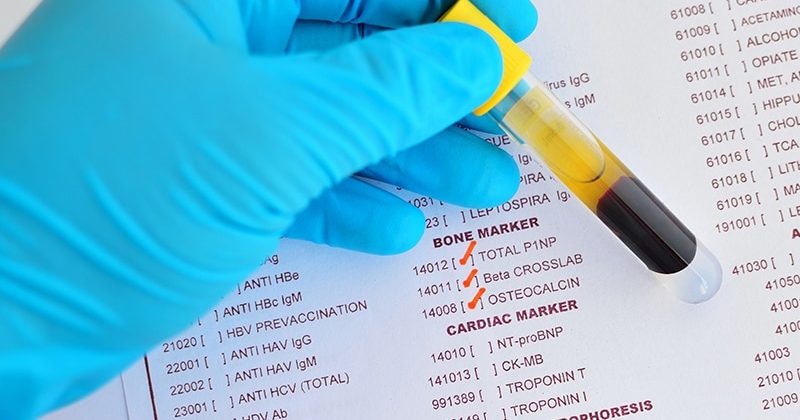Researchers published the study covered in this summary on Research Square as a preprint that has not yet been peer reviewed.
Key Takeaways
-
Among adults with type 2 diabetes, decreased levels of serum osteocalcin — a bone-derived hormone and a marker of bone formation — were associated with a worse cardiovascular risk profile in a new study.
-
Serum osteocalcin levels were negatively associated with fasting blood glucose and A1c levels in women and men aged ≤ 50 years old, but not in men aged > 50 years old.
-
Serum osteocalcin levels were negatively associated with triglyceride levels and positively associated with high-density lipoprotein cholesterol (HDL-C) and low-density lipoprotein cholesterol (LDL-C) levels only in men aged ≤ 50 years old.
Why This Matters
-
Clinicians should consider age- and sex-related differences when evaluating the association between serum osteocalcin and cardiometabolic risk factors in patients with type 2 diabetes.
Study Design
-
This was a cross-sectional study of data from 1500 adults aged 18 and older (991 men and 509 women) with type 2 diabetes who were recruited at the First Affiliated Hospital of Zhengzhou University, China, between January 2018 and December 2020.
-
Participants had a blood test to measure fasting blood glucose, serum total cholesterol, triglycerides, LDL-C, HDL-C, uric acid, fasting plasma insulin, C-reactive protein, and A1c. Serum osteocalcin was measured by electrical chemiluminescent immunoassay.
-
Body mass index (BMI) was calculated from weight and height. Insulin resistance was estimated from insulin and fasting blood glucose levels. Blood pressure was also measured.
-
Participants were divided into four groups based on age (≤ 50, > 50 years old) and sex.
Key Results
-
Mean serum osteocalcin was significantly higher in women aged > 50 years old than women aged ≤ 50 years old (15.6 vs 11.3 ng/mL; P < .0001), but was significantly lower in men aged > 50 years old than men aged ≤ 50 years old (12.2 vs 12.9 ng/mL; P = .0081).
-
After adjusting for confounders (age, drinking, smoking, diabetes duration, BMI, and history of cardiovascular disease), serum osteocalcin levels were associated with the following cardiovascular risk factors:
-
Overweight/obesity (odds ratio [OR], 0.944; P = 0.02) in men aged > 50 years old.
-
High A1c and high fasting blood glucose in women and men aged ≤ 50 years old, but not in men aged > 50 years old.
-
High triglycerides (OR, 0.905; P < .0001), metabolic syndrome (OR, 0.914; P < .0001), and low HDL-C (OR, 0.933; P = .002) only in men aged ≤ 50 years old.
Limitations
-
The potential mechanism underlying the effect of serum osteocalcin on cardiometabolic health needs to be explored in further studies.
Disclosures
-
The study did not receive commercial funding.
-
The authors have reported no financial disclosures.
This is a summary of a preprint research study, “Age- and sex-specific differences in the association of serum osteocalcin and cardiometabolic risk factors in type 2 diabetes,” written by researchers from the First Affiliated Hospital of Zhengzhou University and Hunan Children’s Hospital, China. Preprints from Research Square are provided to you by Medscape. This study has not yet been peer reviewed. The full text of the study can be found on Research Square.
Source: Read Full Article
-
